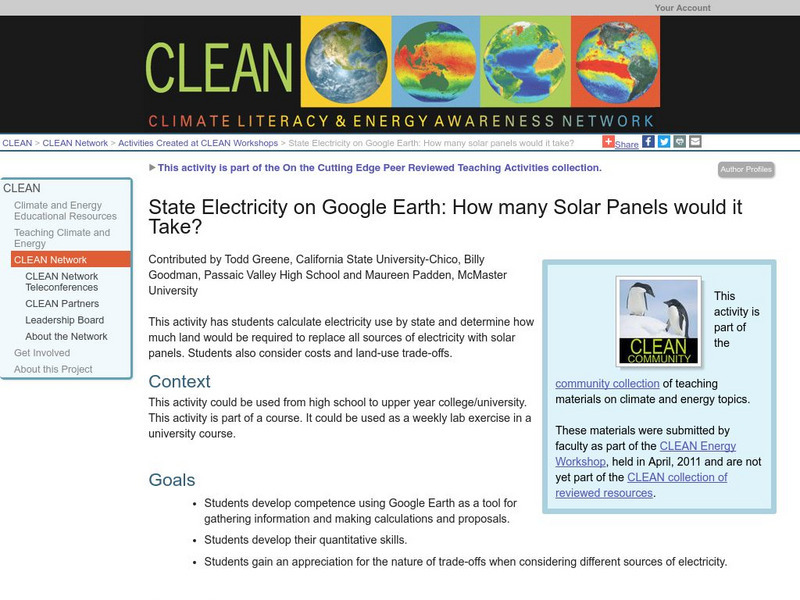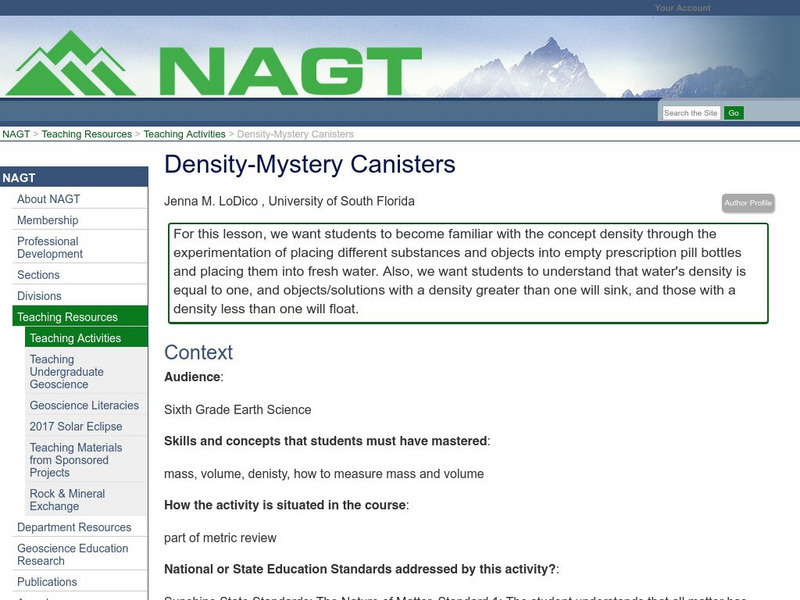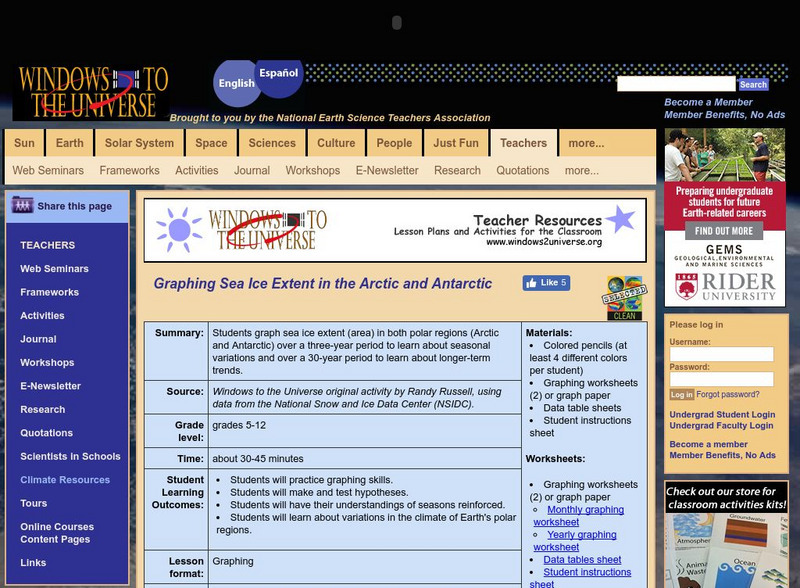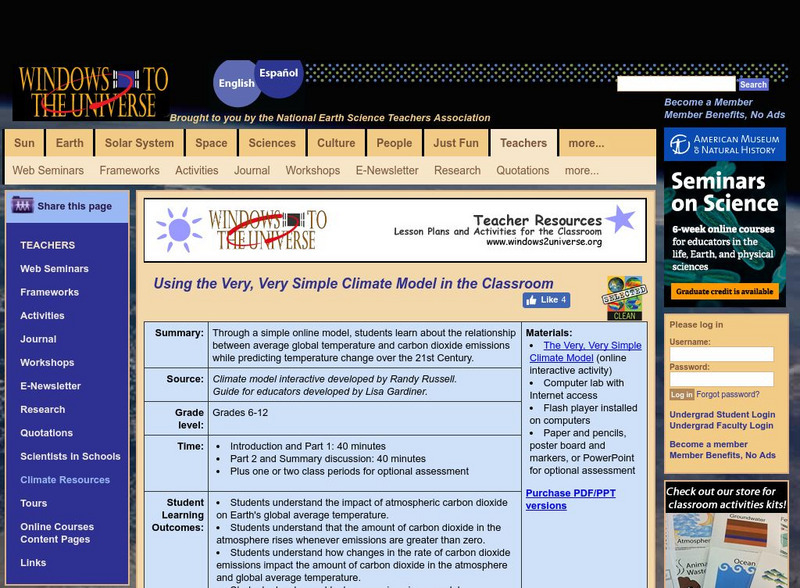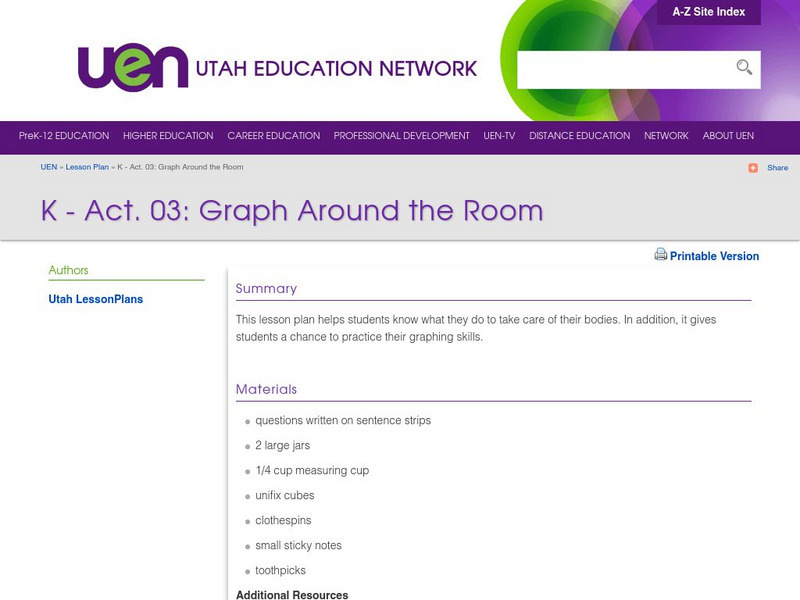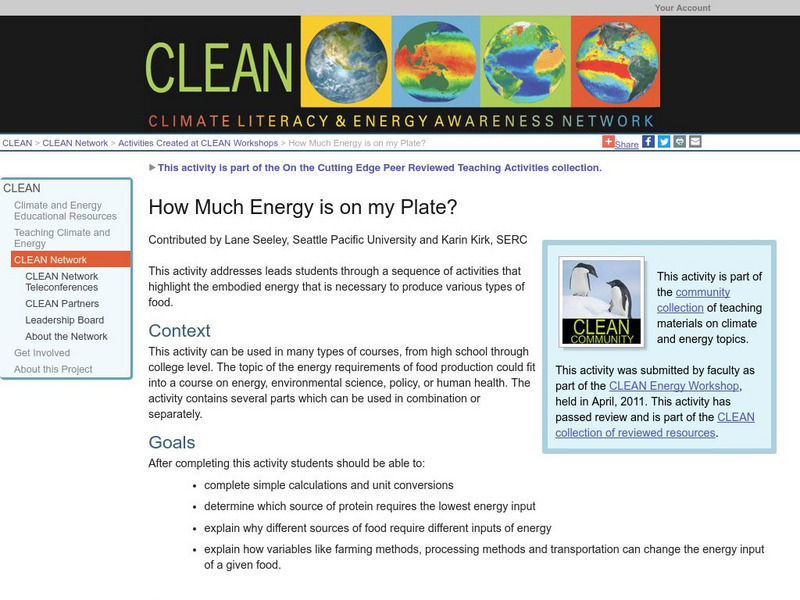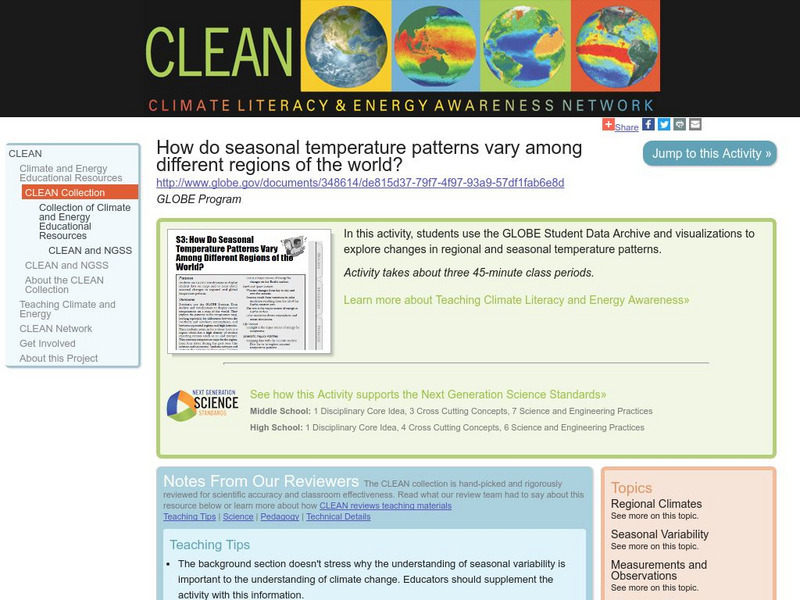Climate Literacy
Clean: State Electricity on Google Earth: How Many Solar Panels Would It Take?
This activity addresses the Energy Awareness Principle by having students calculate electricity use by state, and also determine how much land would be required to replace all sources of electricity with solar panels considering costs...
National Association of Geoscience Teachers
Nagt: Density Mystery Canisters
Students experiment with items that sink or float, and learn that water's density is equal to one, and objects/solutions with a density greater than one will sink, and those with a density less than one will float.
American Geosciences Institute
American Geosciences Institute: Earth Science Week: Wash This Way!
Students use glitter to test the effectiveness of hand washing.
Curated OER
Kids Health: What Kids Need to Know About Kidneys
This is a kid friendly look at what the kidneys look like, where they are, and what they do. Shockwave is needed for viewing.
Curated OER
Kids Health: Why Do I Need to Wash My Hands?
Washing your hands is the easiest way to keep germs from spreading and keeping yourself healthy during flu and cold season. Find out when you should be washing your hands and learn hints for getting your hands as clean as they can be.
National Earth Science Teachers Association
Windows to the Universe: Graphing the Extent of Sea Ice in Arctic and Antarctic
Students graph sea ice extent in both polar regions over a three-year period to learn about seasonal variations, and over a 30-year period to learn about longer-term trends.
National Earth Science Teachers Association
Windows to the Universe: Using the Very Simple Climate Model in the Classroom
Through a simple online model, students learn about the relationship between average global temperature and carbon dioxide emissions while predicting temperature change over the next century.
Utah Education Network
Uen: K Act. 03: Graph Around the Room
In this lesson plan, students will learn about how to keep good hygiene. While learning, students will practice their graphing skills.
Centers for Disease Control and Prevention
Centers for Disease Control: Importance of Washing Hands
This site from the Center for Disease Control provides an explanation of why it is important to wash your hands and the consequences if you don't. Also provides step-by-step directions of hand washing.
Climate Literacy
Clean: Getting to the Core of Climate Change
Students investigate climate changes going back thousands of years by graphing and analyzing ice core data from Greenland and Antarctica. They use information about natural and human-caused changes in the atmosphere to formulate...
PBS
Nova: The Big Energy Gamble
Students conduct an energy audit to determine how much carbon dioxide their family is producing, and then make recommendations for lowering their family's carbon footprint.
Climate Literacy
Clean: How Much Energy Is on My Plate?
Using concept sketches, students study energy requirements of food production explain why different sources of food require different inputs of energy. They also investigate how variables like farming methods, processing methods and...
TED Talks
Ted: Ted Ed: When Is Water Safe to Drink?
Mia Nacamulli examines water contamination and treatment.
TED Talks
Ted: Ted Ed: The Science of Flint's Water Crisis
The water crisis in Flint, Michigan is a prime example of science being ignored, unknown and even misused. The switch in water source damaged hundreds of millions of dollars of infrastructure, caused deadly bacterial outbreaks and...
Climate Literacy
Clean: Seasonal Temperature Pattern Variation in Different Regions of the World
Learners use GLOBE climate science visualizations to display student data on maps and to learn about seasonal changes in regional and global temperature patterns.
Climate Literacy
Clean: Climate Change on the Antarctic Peninsula
In this cross-curriculum inquiry, students use a cooperative approach to investigate the effect of climate change on the ecosystem of the Antarctic Peninsula. The activity stresses the importance of evidence in the formulation of...
NOAA
Noaa: Ocean Explorer: Keeping Watch on Coral Reefs
Students read coral reef tutorials, describe the role of satellites, analyze oceanographic data, and identify actions to reduce threats to these fragile ecosystems. Their goal is to ultimately produce a public education program about...
NASA
Nasa: Effect of the Sun's Energy on the Ocean and Atmosphere
A project based lesson where students' mission is to conduct a series of tasks that enable them to audit Earth's energy budget and help answer a number of science questions.
CK-12 Foundation
Ck 12: Earth Science: Hydroelectric Power Study Guide
Review the main concepts of hydroelectric power with this review guide.
CK-12 Foundation
Ck 12: Life Science: 12.28 Preserving Water Sources
Learn about preserving water resources.
Thinkport Education
Thinkport: Water, Water, Everywhere: Sample Water Purification Systems
Learn about the two methods to clean water: distillation and filtration.
Thinkport Education
Thinkport: Water, Water, Everywhere: Global Water Issues
Explore reports and news articles to build understanding of global water issues.
Thinkport Education
Thinkport: Water, Water, Everywhere: The Engineering Design Process
Students brainstorm new ideas during part of the engineering process of designing a water purification system.
Thinkport Education
Thinkport: Water, Water, Everywhere: Water Quality: Possible Solutions
Students act as engineers to design a basic solution to the water quality problems studied.


